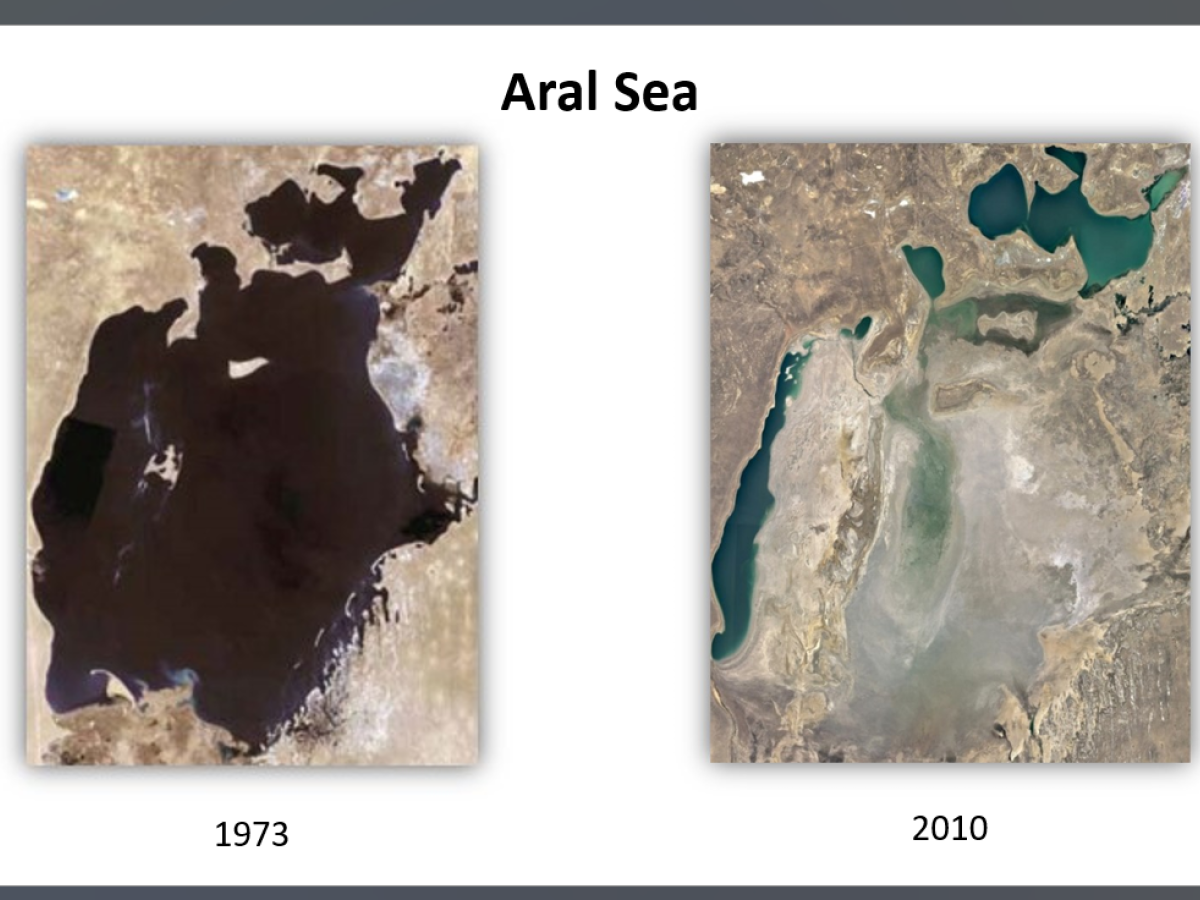For Immediate Release
Press Release
Almaty, Kazakhstan, April 11, 2024 – This week (April 12-16), USAID is leading an expedition to the USAID Oasis project on the former shores of the Aral Sea in the Kyzylorda region of Kazakhstan. USAID and its Kazakhstan partners have created a 500-hectare demonstration site for testing black saxaul shrubs as a first step in restoring the local ecosystem.
The Aral Sea disaster is considered one of the worst ecological catastrophes in human history. Formerly the fourth largest lake in the world, the Aral Sea began shrinking in the 1960s when the rivers that supplied it with water were redirected to irrigate massive agricultural fields. Today, the Aral Sea is only at 10% of its original water surface area. The remaining portion has turned into the world’s newest desert, the Aralkum Desert. This transformation has caused frequent sand and dust storms, leading to severe pollution in the environment and negatively impacting health in local communities.
The USAID Oasis serves as a powerful example of the impact of climate change and the growing water crisis in Central Asia. However, it also inspires hope as governments, NGOs, and communities have come together to take collaborative action to resist and build resilience against these pressing threats.
The Oasis is a part of a larger USAID initiative called USAID’s Environmental Restoration of the Aral Sea Activity (ERAS-I). USAID launched this initiative in 2021 in cooperation with the Executive Directorate of the International Fund for Saving the Aral Sea (ED IFAS). The name “Oasis” reflects its purpose of being a refreshing patch of green in the desert, which is the first step towards reviving the plant and animal life of the region.
The U.S. Ambassador to Kazakhstan, Daniel Rosenblum, will travel to the Oasis to commemorate the project’s success and celebrate the people and organizations who have contributed their time and effort to this significant achievement.
“The testing and research at the Oasis will benefit not only Kazakhstan communities in this region, but will also inform ecosystem restoration efforts throughout the Aral Sea region. Working together with national and international partners, we are proud to be part of this mission to find collaborative solutions to build climate resilience in Central Asia,” said Ambassador Rosenblum.
###
USAID’s Regional Water and Vulnerable Environment activity is focused on strengthening regional capacity to manage shared water resources and mitigating environmental risks in the Syr Darya and Amu Darya river basins.
###
USAID is the world’s premier international development agency and a catalytic actor driving development results. USAID’s work advances U.S. national security and economic prosperity, demonstrates American generosity, and promotes a path to recipient self-reliance and resilience. For more information, visit: https://www.usaid.gov/central-asia-regional and USAID’s Facebook page: https://www.facebook.com/USAIDCentralAsia .


